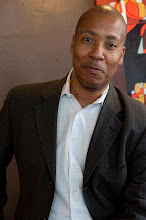Massively Collaborative Mathematics
In January, Timothy Gowers, a professor of mathematics at Cambridge and a holder of the Fields Medal, math's highest honor, decided to see if the comment section of his blog could prove a theorem he could not.
In two blog posts — one titled "Is Massively Collaborative Mathematics Possible?" — he proposed an attack on a stubborn math problem called the Density Hales-Jewett Theorem. He encouraged the thousands of readers of his blog to jump in and start proving. Mathematics is a process of generating vast quantities of ideas and rejecting the majority that don't work; maybe, Gowers reasoned, the participation of so many people would speed the sifting.
The resulting comment thread spanned hundreds of thousands of words and drew in dozens of contributors, including Terry Tao, a fellow Fields Medalist, and Jason Dyer, a high-school teacher.
It makes fascinating, if forbiddingly technical, reading. Gowers's goals for the so-called Polymath Project were modest. "I will regard the experiment as a success," he wrote, "if it leads to anything that could count as genuine progress toward an understanding of the problem." Six weeks later, the theorem was proved. The plan is to submit the resulting paper to a top journal, attributed to one D.H.J. Polymath.
By now we're used to the idea that gigantic aggregates of human brains — especially when allowed to communicate nearly instantaneously via the Internet — can carry out fantastically difficult cognitive tasks, like writing an encyclopedia or mapping a social network. But some problems we still jealously guard as the province of individual beautiful minds: writing a novel, choosing a spouse, creating a new mathematical theorem. The Polymath experiment suggests this prejudice may need to be rethought. In the near future, we might talk not only about the wisdom of crowds but also of their genius.
No comments:
Post a Comment